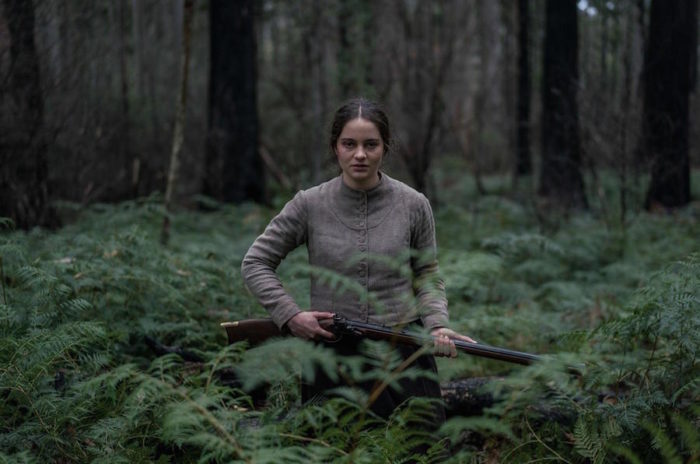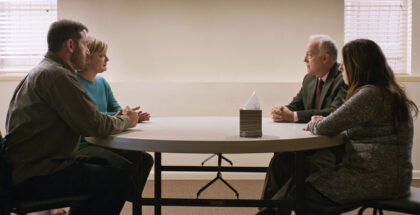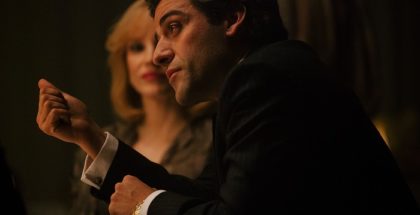VOD film review: The Nightingale

Review Overview
Cast
8Direction
8Horror
8Rating
David Farnor | On 01, Dec 2019
Director: Jennifer Kent
Cast: Aisling Franciosi, Sam Claflin, Baykali Ganambarr
Certificate: 15
The Nightingale is one of the most unpleasant, harrowing cinema experiences you will likely ever have. That’s not only intentional, but arguably also essential.
Jennifer Kent’s follow-up to The Babadook takes place in 1825 Tasmania and follows a young Irish convict, Clare (Franciosi), who is being detained in the island penal colony with her husband. Their already uncomfortable life together, though, is disrupted horrifically by Hawkins, a military officer, leaving Clare with a burning, unstoppable drive for vengeance.
It’s the kind of premise that sounds like the basis of a questionable 1970s flick, but The Nightingale is decidedly more than that and consciously avoids the tropes, shortcomings and outdated attitudes of the genre. The violence in it is questionable, but the questions are aimed solely at the colonial forces and the attitudes they perpetuated.
Sam Claflin provides an impeccably foul presence as Hawkins, the officer who treats Clare, and every other form of life he encounters, as entirely disposable and inconsequential. He could have been a one-note psychopath, but Claflin, and Kent’s screenplay, invests him with something more obscene, and more disturbing: an all-too-recognisable feeling of entitlement. That colonial viewpoint extends from his career, in which he sees himself automatically ascending the ranks of power, to Clare, her husband and her child. He’s a cold machine of indifference, someone who can’t stand “all the noise” of a purportedly uncivilised place, someone who’s bored, arrogant and inherently racist – he’s a monstrous figure made from the pages of history, and Claflin and Kent make sure that figure as seen in its full, unflinching ugliness.
The opening 20 minutes alone are sickening, as we see the effects of Hawkins’ mindset and behaviour. One confrontation involving a bedroom wall might well be one of the most upsetting things ever put on celluloid, but Kent’s direction takes care not to exploit any of the atrocities we witness – the rape that occurs in one scene is determinedly shown from Clare’s perspective, and Kent ensures that there is no embellishment or glamorisation. Every single death that occurs feels as brutal as it is pointless – an endless toll of callous white superiority.
Franciosi is remarkable as Clare, channelling all these unthinkable ordeals into a portrait of unbridled anger and sadness; every twitch of her face, which Kent frequently shows in close-up, speaks volumes. From the moment her forced facade of politeness snaps, the morning after Hawkins’ assault, her actions are shown to be not only necessary but inevitable.
As she sets off across the Tasmanian territory to track down Hawkins, she’s joined by Aboriginal guide Billy (Baykali Ganambarr). Refusing to help Hawkins but sensing a solidarity in Clare’s understanding of abuse and exploitation, they make an interesting partnership; over the course of the two-hour-plus runtime, Clare’s own attitudes towards Aboriginal people and culture grow and, while the pair begin to bond, their mutual respect isn’t a simple, easy arc.
Throughout, Kent keeps things claustrophobic by filming everything with a constricted aspect ratio. Accompanied by Jed Kurzel’s intense score, the result is a gruelling, but gripping anti-Western, one that’s fused with horror to form a tale of defiance, a chronicle of cruelty, an ode to the need for compassion and a song of identity that offers just enough humanity to get you through the transgressions of the past to look to the future. You won’t enjoy watching The Nightingale, but you may well be glad you did.
Related Posts
VOD film review: Mass (2021) January 23, 2022 | David Farnor

Catch up TV review: An Audience with Adele, Empire State of Mind, Unapologetic, ... November 28, 2021 | David Farnor

Why you should be watching The Venture Bros. on All 4... February 17, 2019 | Andrew Jones

VOD film review: A Most Violent Year May 21, 2015 | Clarisse Loughrey
















